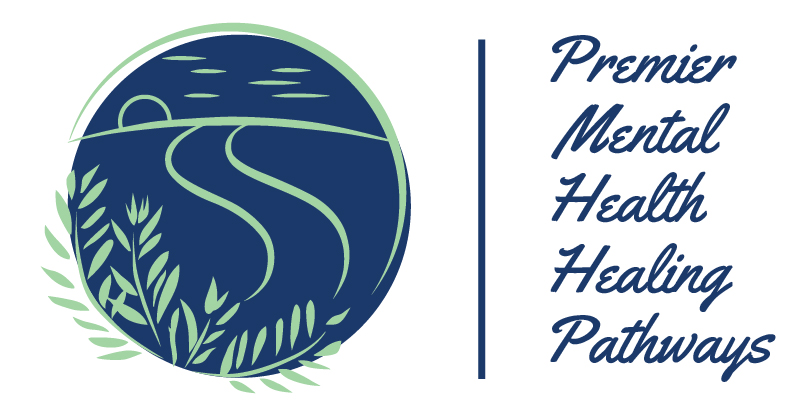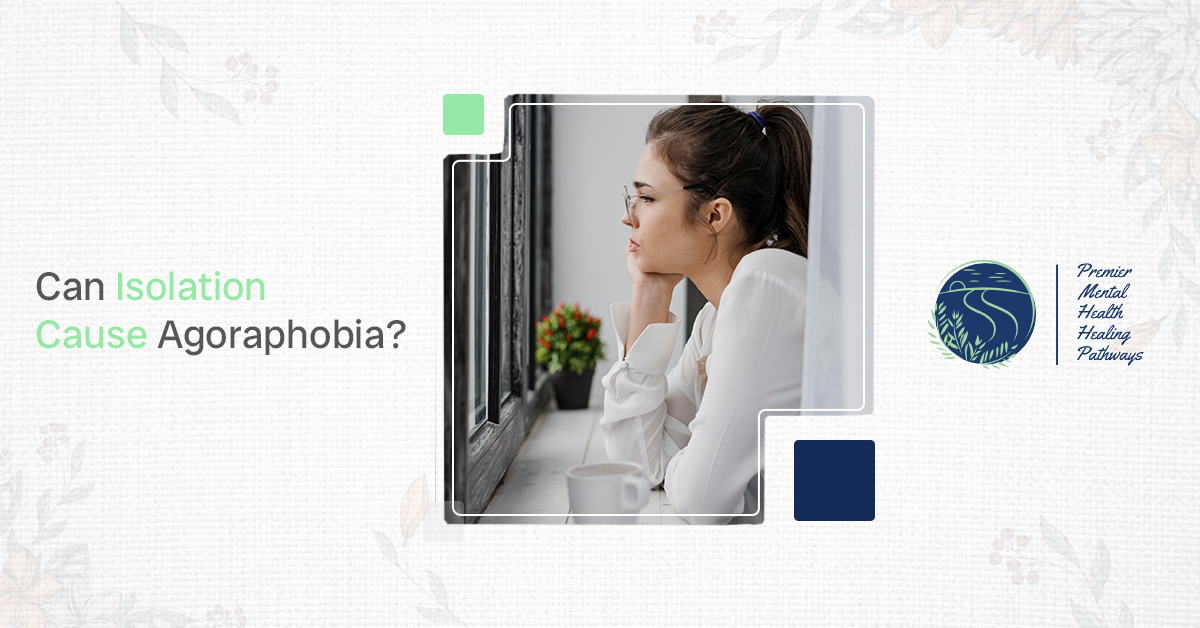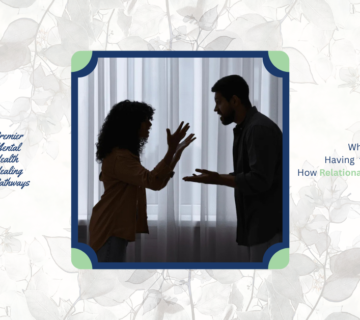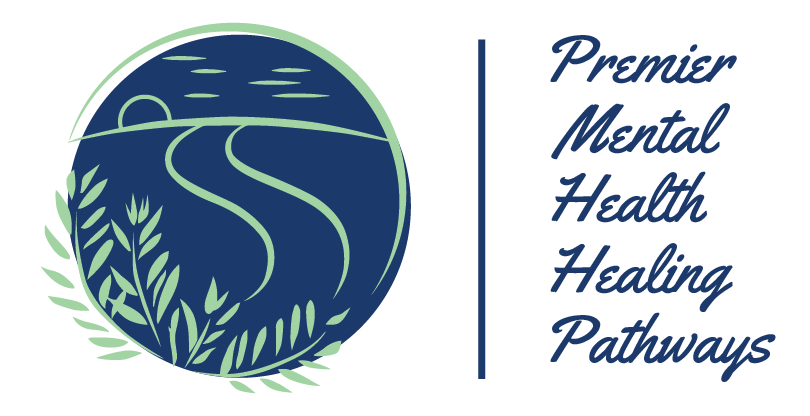Isolation and agoraphobia have a strong connection. They often create a tough cycle for those affected. It’s crucial to know how isolation can cause agoraphobia. This is key for prevention and treatment.
Let’s find the answer to the question: can isolation cause agoraphobia?
Are you struggling with mental health issues? We get it. Premier Mental Health Healing Pathways offers a path to regain control. Reach out now for support and guidance. Let us help you find your way back.
What is Agoraphobia?
Agoraphobia is an anxiety disorder. It triggers fear of situations where escape or help seems impossible. This fear leads people to avoid places that could spark anxiety. As a result, it severely limits their activities and social interactions.
Can Isolation Cause Agoraphobia?
Agoraphobia is a severe anxiety disorder. It can disrupt a person’s normal life, affecting their interactions. Scientists study its causes. They want to know why some people are affected while others are not. They suspect isolation might be a factor, but other reasons could exist. Meanwhile, researchers seek answers. Many people are stuck. Their worlds shrink daily.
Agoraphobia’s causes are not fully understood. Scientists believe it results from a mix of genes, the mind, and the environment. There’s no single cause yet, but research suggests a complex origin.
- Losing a parent to death or separation in childhood
- Growing up with distant or overprotective parents
- Having a close relative with agoraphobia or an anxiety disorder
- A personal history of anxiety, depression, or eating disorders
- Genetic predispositions or variations
- An inhibited, neurotic, or anxious temperament
- Experiencing trauma, like an attack or assault
- Major life changes, like divorce or job loss
- Substance dependence
So, can isolation cause agoraphobia?
Isolation isn’t a major risk factor. However, experts suggest it may have raised anxiety during COVID-19. This could heighten the risk of agoraphobia in some people.
Isolation by itself does not appear to be a dominant cause of agoraphobia. Extended isolation and anxiety about leaving home may raise the risk of the disorder.
Agoraphobia is an anxiety disorder characterized by intense fear or anxiety about situations where escape might be difficult or help unavailable in case of a panic attack. Here are some common signs and symptoms:
Signs and Symptoms of Agoraphobia
- Intense Fear or Anxiety: A strong fear of crowded or open spaces or situations that are hard to escape
- Panic Attacks: Frequent panic attacks in agoraphobia-related situations.
- Avoidance Behavior: Steering clear of shopping malls, public transport, or large gatherings.
Physical Symptoms
- Rapid Heartbeat: Heart races in stressful situations.
- Shortness of Breath: Breathing becomes difficult or feels insufficient.
- Dizziness or Lightheadedness: You feel faint or unsteady.
- Sweating: Excessive sweating occurs in anxiety-inducing situations.
Behavioral Symptoms
- Limiting Activities: Staying home or avoiding anxiety-inducing situations.
- Needing Companions: Relying on others for outings, feeling unable to go out alone.
Duration and Impact
- Duration: Symptoms last over six months.
- Impact on Life: It severely affects social, work, or crucial life areas.
If you or someone you know has these symptoms, seek help.
Is Agoraphobia Genetic?
Agoraphobia isn’t caused by genetics alone. A family history of the disorder increases risk, suggesting a genetic link. However, environmental factors are also causes. Trauma, ongoing stress, and childhood experiences can trigger it.
In this case, genes may set the stage, but life events often lead to the disorder. Both genetic and environmental factors work together to develop and influence agoraphobia.
Genes may heighten agoraphobia risk, yet they rarely act alone. This anxiety disorder often starts from a mix of genes, life experiences, and triggers.
Is Agoraphobia Common?
Anxiety affects many in America’s open spaces. Agoraphobia, though rare, significantly impacts lives nationwide. It makes some feel confined despite the country’s vastness.
The National Institute of Mental Health has key stats on agoraphobia:
- In the U.S., 1.3% of adults have agoraphobia. In the past year, about 0.9% were affected.
- In the U.S., 258.3 million adults exist. About 3.4 million will face agoraphobia. Currently, around 2.3 million show symptoms.
- Agoraphobia’s impact grows each year. It severely cripples 40.6% of adults, while 30% face moderate issues. The Sheehan Disability Scale highlights this, showing how fear and anxiety disrupt lives.
- Many agoraphobics are stuck at home and jobless, facing daily struggles. The DSM-5 reveals the disorder’s severe effects on lives and jobs.
How to Overcome Agoraphobia on Your Own
- Learn About Agoraphobia: Know its symptoms.
- Face Fears Gradually: Start small, then tackle bigger challenges.
- Use Relaxation Methods: Try deep breathing, mindfulness, or meditation.
- Challenge Negative Thoughts: Replace fears with positive thoughts.
- Set Achievable Goals: Aim for small, realistic targets. Celebrate wins.
- Build a Support Network: Talk to friends or join groups.
- Reduce Avoidance: Briefly face fears. Don’t shy away completely.
- Live Healthily: Exercise, eat well, sleep enough. Limit caffeine and alcohol.
- Keep a Journal: Write down thoughts and progress.
- Seek Help if Stuck: Get professional support if needed.
Remember
Take your time, be patient, and celebrate each step forward!
Wrapping Up: Can Isolation Cause Agoraphobia?
Anxiety and agoraphobia can worsen in solitude, but isolation isn’t the main cause. It’s vital to recognize symptoms and seek support. This step is crucial in managing the condition. Getting help can improve things for those with agoraphobia, including you or a loved one.
FAQs
Can isolation cause agoraphobia?
Fear grips those in isolation for too long. Going outside becomes scary. Being alone increases anxiety, worsening agoraphobia. But isolation alone doesn’t cause this condition. Other factors are important. Yet, time spent alone can raise fears. It makes the outside world seem more dangerous.
What is the difference between agoraphobia and social anxiety?
Agoraphobia escapes seem impossible, trapping people in fear. It drives them away from crowds, fearing helplessness. Meanwhile, those with social anxiety fear judgment and embarrassment. They avoid social interactions, as agoraphobics avoid places. Both conditions lead to isolation, though for different reasons. Agoraphobia is a trap; social anxiety is silence.
How can I help someone with agoraphobia?
Show compassion and empathy. Suggest counseling in a supportive manner. Respect their boundaries. When supporting them. Your support is crucial.
Can I overcome agoraphobia on my own?
Self-help is effective for many, but professional guidance speeds up progress. Expert support enhances personal efforts, increases success rates, and provides valuable insights.





No comment